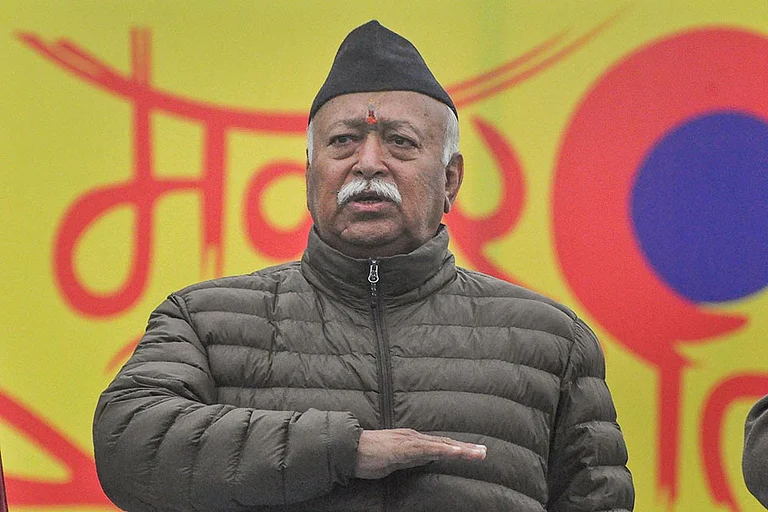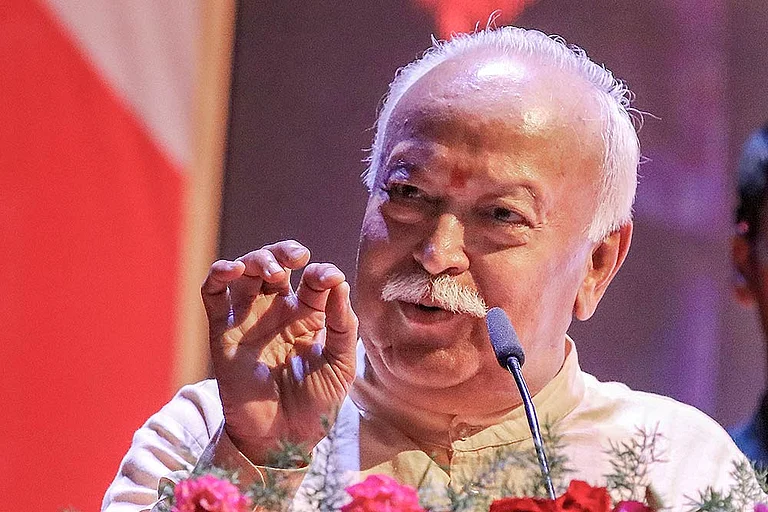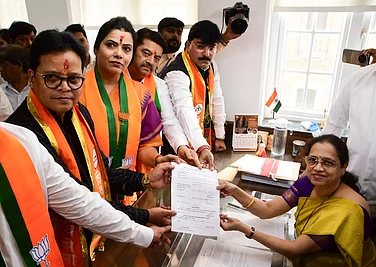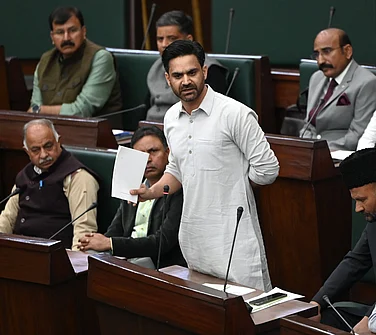Just a day after Narendra Modi took oath as the Prime Minister for the third consecutive term, RSS chief Mohan Bhagwat came down heavily on both the ruling party and the opposition and reminded them of the ‘decorum’ of the electoral battle. Addressing a gathering of RSS workers and leaders, the senior Sanghchalak said, “A true sevak maintains decorum while working… The one who maintains decorum does his work but remains unattached. There is no arrogance that I did this. Only such a person has the right to be called a sevak.”
His emphasis on ‘arrogance’ comes when the BJP fell short of a majority after a 43-day-long election that the party fought in Modi’s name. Though the party gave the slogan of ’400-paar’ and the exit polls allegedly followed suit, the outcome on June 4 was quite disappointing for them. It was for the first time in the last few years that PM Modi didn’t take his name in ‘third person’ while referring to ‘Modi Sarkar’ and instead evoked the ‘NDA coalition’ government during his post-result address to the party workers.
Several political analysts have even pointed out that the RSS, considered to be the foundational base of the BJP, didn’t even work for the party with much gusto. Besides, the divisive campaign that brought the attention of the Election Commission, as it issued notice to the president of both the major political parties, was not taken lightly by the voters, think analysts.
Against this backdrop, Bhagwat said, “The kind of things that were said, the way the two sides castigated each other... the way no one cared about social divisions being created because of what was being done… and for no reason the Sangh was dragged into this… untruths were spread with the use of technology. Is this the way knowledge should be used? How will the country operate like this?”
He also termed the opposition as ‘pratipaksh’ instead of ‘vipaksh’, highlighting the importance of building consensus. In the last two terms of PM Modi, the opposition was merely reduced to its decorative value without having numbers and a consolidated voice. However, this time with 234 MPs on their side, it is expected that it would not be easy for the government to run the show without taking them on board.
The significance of opposition numbers and how it has boosted the moral energy of Congress could be found in the very first press conference of Rahul Gandhi (after the results) where he asked the government to form a Joint Parliamentary Committee to investigate the alleged stock market boom and subsequent crash following the exit polls and the final results respectively. Due to their numbers, the opposition would now have a formidable representation in parliamentary committees.
The enhanced significance of the opposition was also echoed by Bhagwat as he said, “When society decides that we have to walk together despite our differences, then a consensus is built. Parliament has two sides so that both sides can be heard. Every coin has two sides. If one side brings an idea, then the other side has to reveal the other perspective.”
However, this is not the only instance of discontent between RSS and BJP that has come to light. A recent article in RSS mouthpiece Organiser written by one of their leaders, Ratan Sharda, makes it more clear.
Criticising the Modi-centric approach of the BJP, Sharda writes, “Targets are achieved by hard work on the field, not sharing posters and selfies on social media. Since they were happy in their bubble, enjoying the glow reflected from Modiji’s aura, they were not listening to the voices on the streets.” Claiming that the RSS is not a ‘field force’ of the BJP, he points out how the party has neglected ‘older dedicated workers’ who have worked for the party without seeking any recognition.
Notably, since Modi came to power, senior BJP leaders like L K Advani and M M Joshi, known to be close to the RSS ranks and files, were side-lined. The party formed a ‘Margdarshak Mandal’ and had confined their roles to advisors. Not only that, in the last few years, as the BJP opened the gates for the leaders of the opposition parties and gave them tickets, there was growing disenchantment among those workers who have been fighting against these turncoats for years. Sharda mentions the case of Ajit Pawar’s accommodation within the Maharashtra government wherein despite having a comfortable majority, the BJP allegedly manifested the split of NCP and gave him a crucial space in the coalition.
In the words of Sharda, “Sharad Pawar would have faded away in two to three years as NCP would have lost energy with infighting between cousins. Why was this ill-advised step taken? BJP supporters were hurt because they had fought against this Congress ideology for years and were persecuted.” He also trained guns at party MLAs and MPs for being inaccessible to people.
The title of the latest issue of Organiser ‘Historic But Introspective’ also indicates how the RSS wants some introspection at this stage when Modi takes the baton for the third term in a row. Will this rift have a further impact on the BJP’s politics? How will the party navigate amidst coalition compulsion on one side and such slight but intense raps from RSS on the other?



























